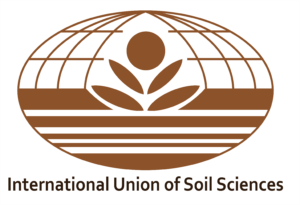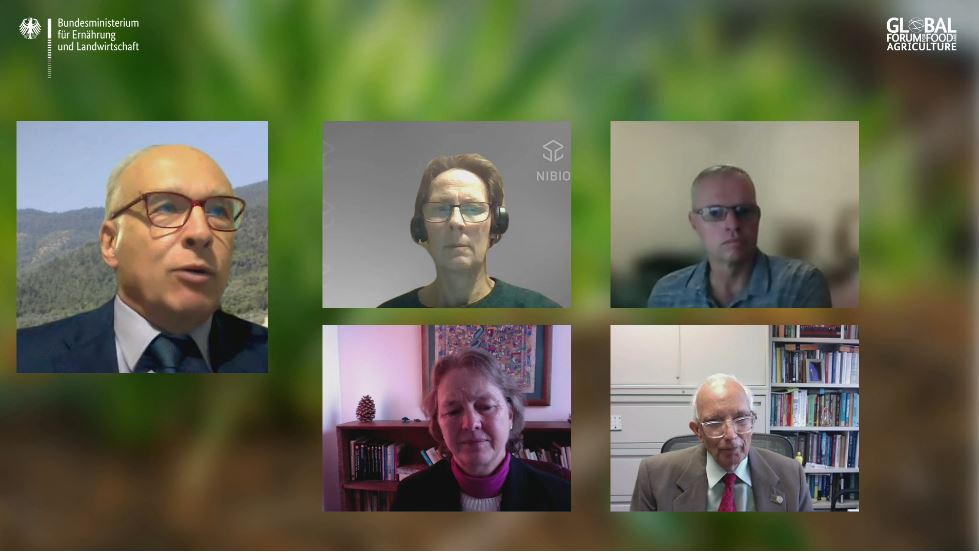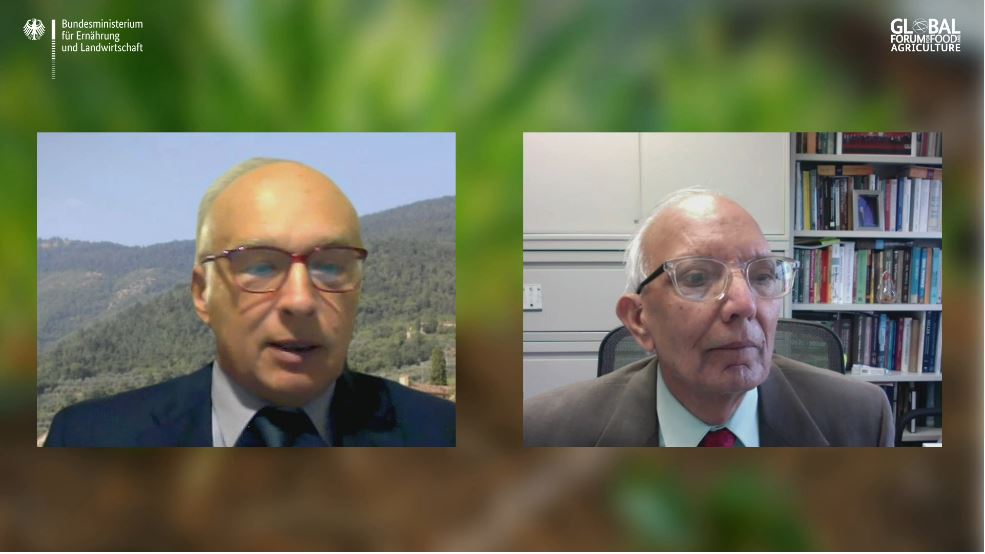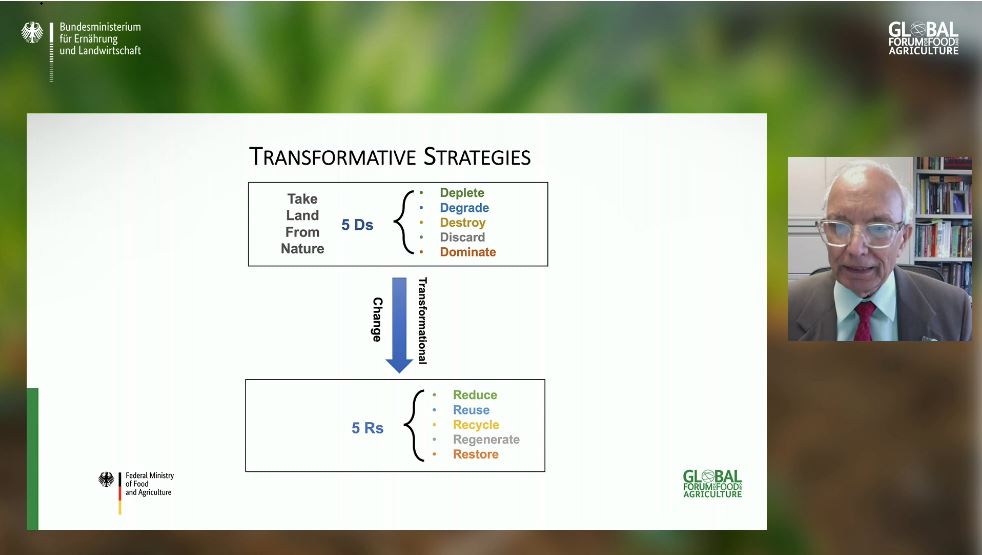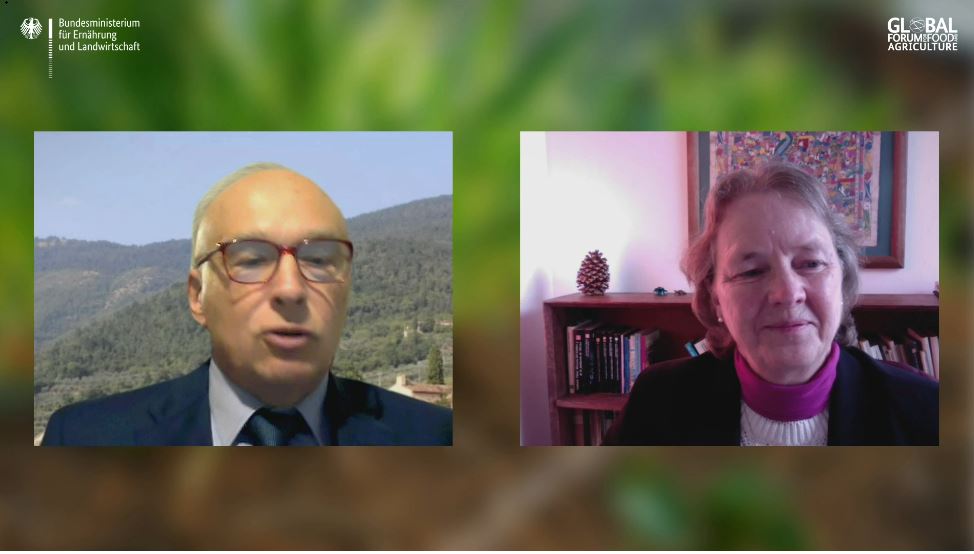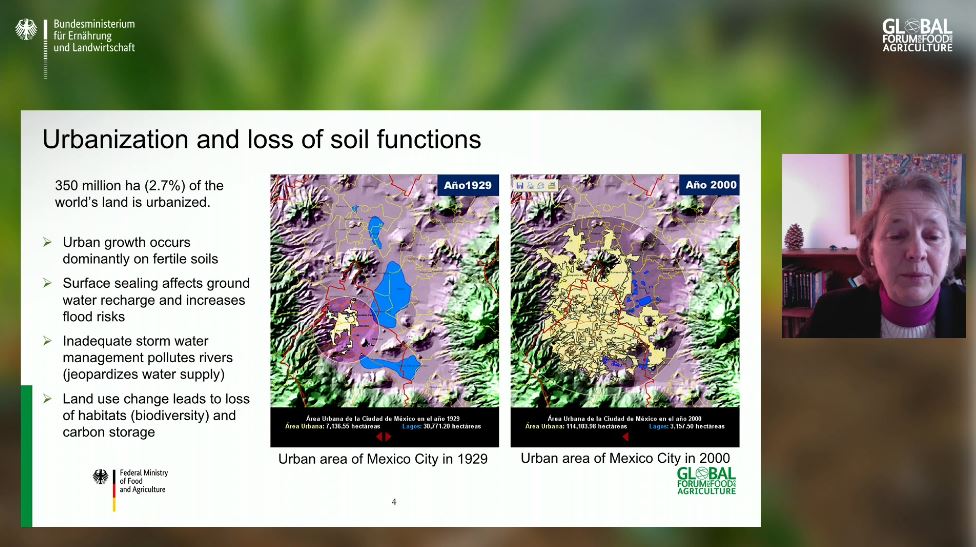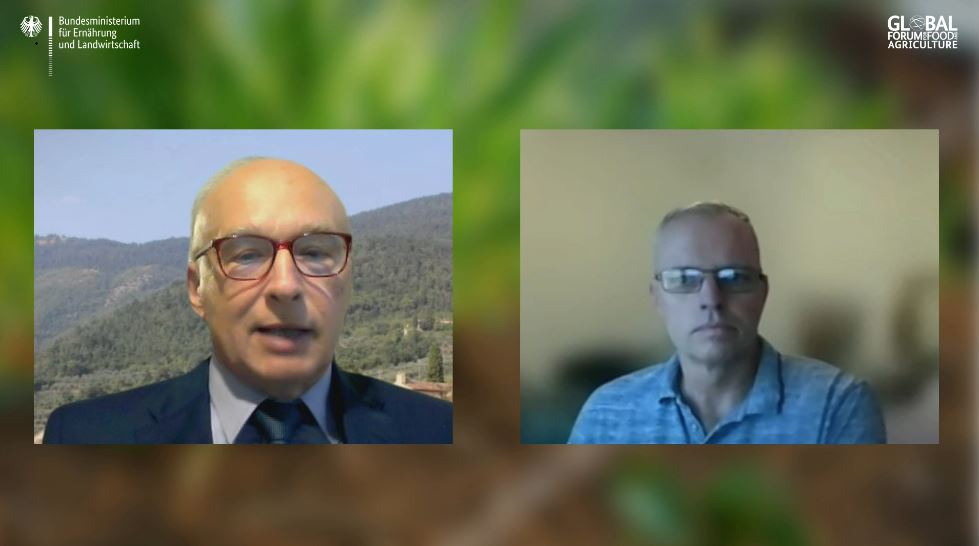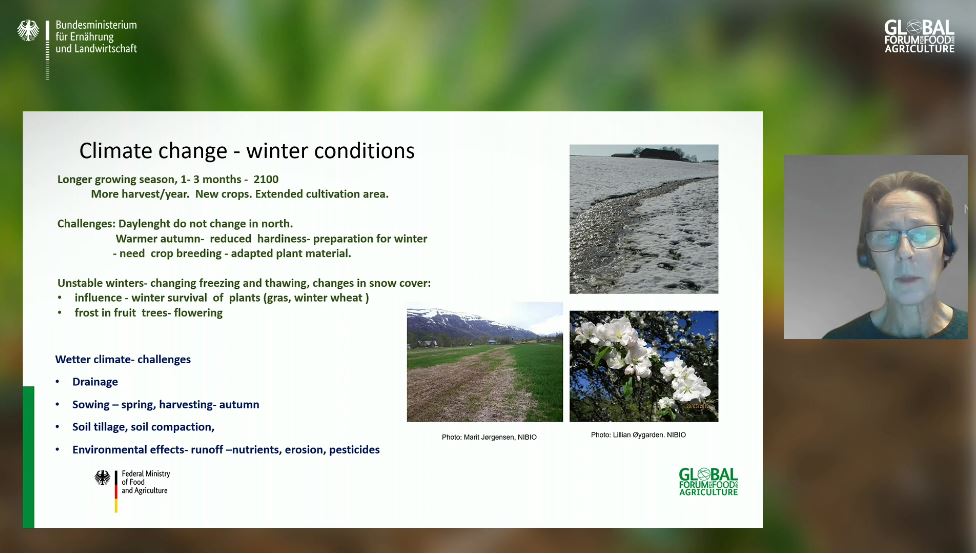Global perspectives on sustainable soil management towards food security
International Union of Soil Sciences (IUSS)
Time: Monday, 24. January 2022, 5:00 p.m. – 6:00 p.m. (CET), subsequent deep dive 6:00 p.m. – 6:30 p.m.
Languages: English, German
Summary:
The panel showed several examples of soil-based approaches and
best practices, based on scientific knowledge and cooperation
with authorities and stakeholders, which can mitigate or resolve
the conflicts between rural and urban areas. Clear planning for
soil management and re-use is critical in retaining the
potential value of soils. This requires knowledge of the soils
and specialist input to soil handling strategies, and wider
understanding of how new developments can be designed to
maximise the extent of soil included, the health of that soil
and how it can be used to support the community, from green
spaces for climate adaptation to local food production. In urban
environments, quantities of wastes and wastewater are produced,
which are assets to increase agricultural productivity and
construct soils of gardens, green roofs, and green areas. The
reuse of treated wastewater in periurban agriculture sets high
quality water free for human consumption. It has become
mandatory to recognize and preserve urban soil functions to
achieve sustainability. Based on the concept of regenerative
agriculture and agroecology, the Green Revolution of the 21st
century must be soil centric, ecosystem based, and aimed at
producing more from less, practicing nutrition-sensitive
agriculture, and returning some land and water back to nature.
It is also important to grow soil C as a farm commodity that can
create another income stream for land managers.
Recordings
Moderator
Edoardo Costantini is an agronomist with a specialization in Pedology. He has carried out research work on soil genesis, classification, mapping, and conservation for over 40 years, leading national and international projects focused on Sustainable Soil Management; Soil Restoration and Conservation; Digital Soil Mapping and Geodatabases; Land Suitability for Winegrape and other Quality Crops. Currently, he is a senior researcher by the CNR-IBE – Biology, Agriculture and Food Sciences Department, Italy. He was Research Director at the CREA-Research Centre for Agriculture and Environment, Acting Director of the Research Centre for Agrobiology and Pedology in Florence, and professor of Pedology at the University of Siena, Italy. He is the President-Elect of the International Union of Soil Sciences. In 2017 he received the Norman Hudson Memorial Award of the World Association of Soil and Water Conservation (WASWAC) and in 2019 the Gerold Richter Award of the European Society for Soil Conservation (ESSC).
Panel Guests
Bruce is Director of Sustainable Land Management at Arcadis and President of the British Society of Soil Science. Bruce has a degree and PhD in Soil Science and following a period of undertaking research on various aspects of soils (particularly on soil erosion) became a consultant where he has worked on aspects of the inter-relationships between the physical environment and plant and animal communities (including the development of habitat creation and restoration techniques), the impact on soils and hydrology from land use change and on surveying and mapping soil and land use types across the UK.


